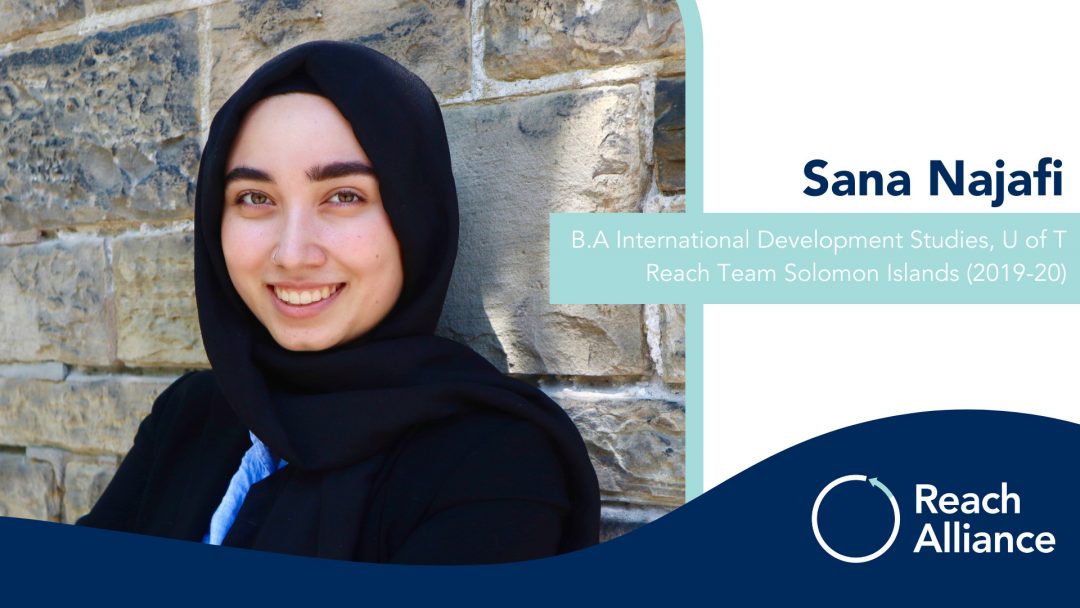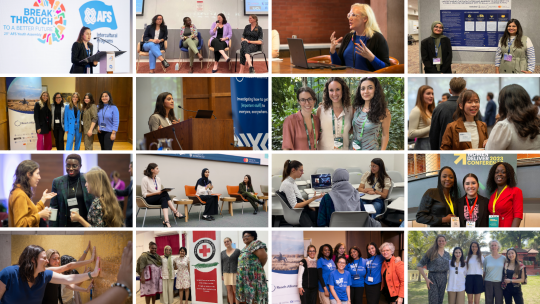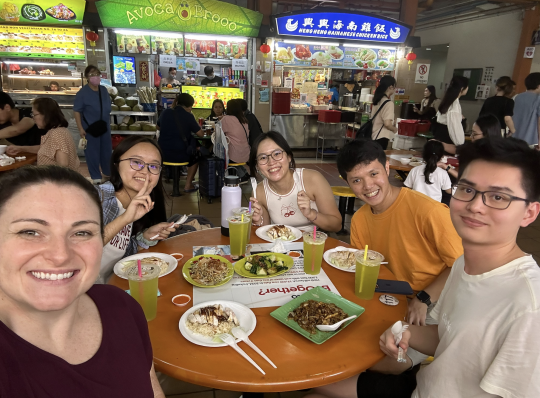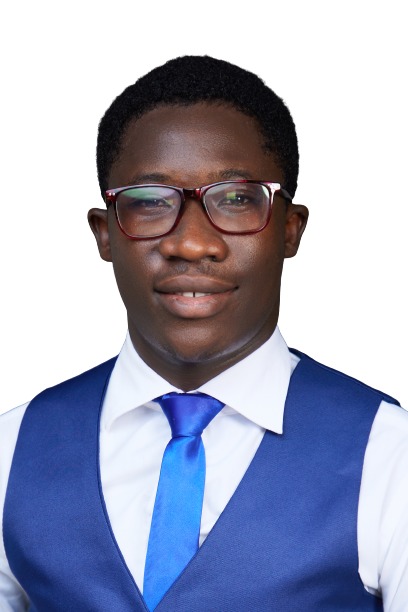Meet Sana Najafi of Team Solomon Islands 2019-20: Access to Justice in Rural Solomon Islands
Meet Sana Najafi (BA’ 20) from Team Solomon Islands: Access to Justice in Rural Solomon Islands

You are currently a Juris Doctor (JD) candidate at the University of Toronto. Can you tell us more about that?
Towards the end of my undergraduate degree, I spent eight months in Nairobi on a co-op term. It was a transformative experience and I learned a lot, but I was left with a real longing for a practical toolkit that could affect tangible change. Law had always been floating around in my mind as an option, and I was fortunate enough to get some experience working in a law firm, so it felt like the perfect next step. I’ll be working at a corporate law firm this summer, and I’ll see how the adventure unfolds from there!
Can you tell us about an exciting project or initiative (whether at work or school) that you are working on now?
I’m currently a clinic manager at Artists’ Legal Advice Services, a legal clinic that provides free summary legal advice to artists across Ontario (and beyond). Law students volunteer to coordinate and facilitate the logistics of the clinic, which has been running entirely virtually since the pandemic began. We’re fortunate to collaborate with a roster of experienced lawyers who volunteer their time to provide advice to the artists who attend the clinic. I love collaborating with students and lawyers and connecting with diverse community artists. Expanding access to justice is always an exciting endeavour for me.
How did your experience in Reach inform your career path [e.g., your case study focused on Access to Justice in rural Soloman Islands – how (if at all) did this impact you seeking an opportunity after graduating]?
By the time we began writing our final case study, I had just begun law school. Analyzing the justice issues in the Solomon Islands framed the legal concepts I was learning about in school in a unique light: they were not abstract concepts to me, but rather real-life mechanisms which I knew impacted, in a fundamental way, the quality of life and resources that communities have access to. My Reach experience gave my legal education a breath of reality that ultimately deepened my interest in what I was learning.
What takeaways or skills [personal or professional] did you gain from your Reach experience that you are applying to your work or study?
Teamwork is certainly the greatest skill I gained from my Reach experience. I was so honoured to be part of a research team of bright women who pushed me to think deeper and differently about our work every day. I’m very proud of the caring and supportive working environment we fostered for one another, which was also strengthened by the coaching guidance provided by Reach. In our team, we prioritized principles of communication, trust and compassion, and I’ve employed these all in both my working and extra-curricular engagements thus far.
What is your fondest memory from your experience in Reach?
I recall a late-night meeting where we were sifting through our interview notes, identifying patterns in the data. Somewhere through the back and forth of it all we began to articulate a theme: justice not necessarily reflected in formal legal cases but rather in a sense of community harmony. I remember a palpable shift, where we began to see our research through a lens that highlighted restorative justice, which ultimately became a central component of our analysis. There was something so meaningful about finally discovering the words which appropriately encapsulated the beauty and complexity of the stories we had researched.
What advice would you give to researchers who are waiting to receive ethics approval and are conducting secondary research on their case study?
With iterative processes such as research, no step is small or unimportant. Building a holistic repertoire of secondary research will later arm you for command over your primary research. Through secondary research, you will expose the questions you care about, the facts that set the stage and the theories that guide you through the mess of it all. A strategy my team used was to individually find articles and then present them to one another at meetings, a nerdy show and tell if you will.
Oh, and be patient! The fun will come soon enough.
What advice or words of encouragement would you give to someone who is interested in applying to the Reach initiative?
Reach tackles the most fundamental human problems of our time, and there is no perspective that is not helpful in identifying the solutions required. So, if you are reading this thinking you have something to say about the projects and issues Reach cares about, go! Apply! Say it. As this community grows, so does the potential for sustainable impact.


